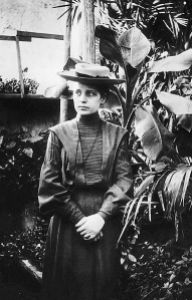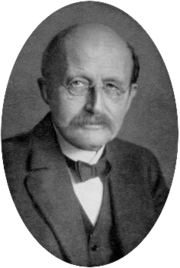I am reading a great book called "Plutonium: A History of the World's Most Dangerous Element" by Jeremy Bernstein. The history of plutonium has been touched by many of the greatest minds in physics. One of the more intriguing people in the book is the physicist Lise Meitner. Because of gender discrimination, she had to battle to become a physicist. Her mentor, Max Planck, is considered today to be the founder of quantum mechanics and was one of the world's leading physicists when Lise was a student in the early years of the 20th century. His work is honored by physicists today with the term "Planck's constant," a number that relates the frequency of a photon to its energy.
During a time when gender discrimination was rampant in physics, Planck took the unusual step of allowing Meitner to attend his lectures and later made her his assistant. Bernstein comments that "[Planck] was probably the most important physicist in Germany. He was also a very decent man." I have another Max Planck story that I have never seen in print that also describes what a decent man he was.
I went to North Hennepin Community College for my first two years of college. I still think of this school fondly as providing me the two best years of education that I ever had. One of the physics professors, Roger Johnson, invited me to attend the 1976 Nobel Conference at Gustavus Adolphus University. These conferences are held annually. For a kid from "Small Town USA," this was a big deal. One of the lectures there was given by Victor Weisskopf, an important contributor to the development of quantum mechanics. He told many stories about all the big personalities in physics during the early 20th century when quantum mechanics was being developed. One story he told was about a letter he sent when he was twelve to Max Planck. As a boy, Weisskopf loved science and was looking for career guidance. He had written the letter to Planck in a tone that was much like a young person today might write to their favorite athlete or singer. He said that Planck responded back to him with a very kind letter of encouragement. Weisskopf then wondered out loud how many of the world's leading physicists today would respond similarly to a young man's fan letter. I found Weisskopf's telling of this story to be very touching and that is why I have remembered it over all these years.
Weisskopf also had a story about Wolfgang Pauli that was pretty cute. Pauli was one of great physicists of the 20th century ("Pauli Exclusion Principle"), and he was famous for being a tough customer. When Pauli was hiring assistants, he chose Weisskopf over Hans Bethe. Bethe later became a physics powerhouse – Freeman Dyson referred to Bethe as the "supreme problem solver of the 20th century." Weisskopf said that when he presented his first work to Pauli, Pauli's only response was "I should have chosen Bethe." Weisskopf laughed when he told the story, but I am sure it hurt at the time.


